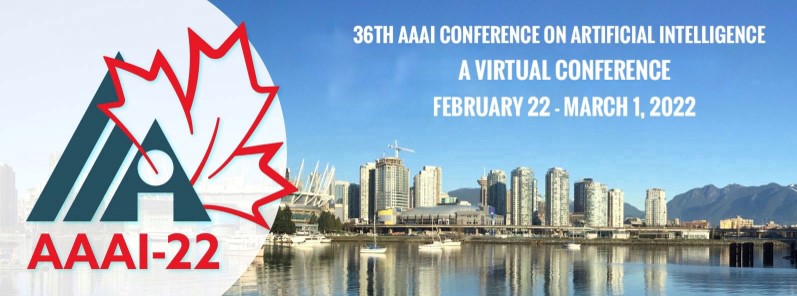
ΑΙhub.org
#AAAI2022 workshops round-up 2: operations research and decision optimisation

As part of the 36th AAAI Conference on Artificial Intelligence (AAAI2022), 39 different workshops were held, covering a wide range of different AI topics. We hear from the organisers of two of the workshops, who tell us their key takeaways from their respective events.
Machine Learning for Operations Research (ML4OR)
Organisers: Ferdinando Fioretto, Emma Frejinger, Elias B. Khalil, and Pashootan Vaezipoor
- The first AAAI workshop on Machine Learning for Operations Research (ML4OR), co-organized by Ferdinando Fioretto (Syracuse University), Emma Frejinger (Universite de Montreal), Elias B. Khalil (University of Toronto), and Pashootan Vaezipoor (University of Toronto), involved more than 100 attendees and speakers who convened to present cutting-edge research at the intersection of learning and decision-making. We hope that the momentum in this emerging area will continue for years to come, at AAAI and other AI/ML conferences!
- Our invited speakers covered a broad range of exciting developments spanning new theoretical results for machine learning in integer programming by Dr Ellen Vitercik (UC Berkeley), foundational insights into the use of graph neural networks in combinatorial algorithms by Professor Stefanie Jegelka (MIT), late-breaking results on evaluating and comparing algorithms by Professor Kevin Leyton-Brown (UBC), and a survey of the use of deep learning in engineering optimization problems by Professor Pascal Van Hentenryck (Georgia Tech).
- Accepted papers to the workshop (available on the website) were also presented and spanned authors from universities in five continents and on topic as diverse as aircraft scheduling and battery management, all operations research problems where machine learning is starting to make an impact!
AI for Decision Optimization
Organisers: Bistra Dilkina, Segev Wasserkrug, Andrea Lodi and Dharmashankar Subrmanian
- Mathematical optimization can provide huge benefits in making better recommendations for real-world decision-making problems. However, its usage is currently limited both due to the complexity and scale of real-world problems, and the time and skills required to create mathematical optimization models for such scenarios.
- Infusing AI, machine learning and reinforcement learning techniques into the creation and solution process of such optimization models can significantly help in addressing these problems but introduces new challenges. A core challenge is how to address the uncertainty resulting from learning optimization models from data.
- These new directions in the infusion of traditional AI and mathematical optimization techniques hold significant business potential and can be the foundation for new research directions and work.
Related articles
- #AAAI2022 workshops round-up 1: AI to accelerate science and engineering, interactive machine learning, and health intelligence
- All of our AAAI 2022 coverage can be found here.
tags: AAAI, AAAI2022

AIhub
is dedicated to free high-quality information about AI.

AIhub
is dedicated to free high-quality information about AI.
Related posts :
Tweet round-up from the first few days of #ECAI2024
We take a look at what participants have been getting up to over the first few days of the event.
22 October 2024, by
Lucy Smith
The Good Robot Hot Take: does AI know how you feel?
In this episode, Eleanor and Kerry chat about why AI tools that promise to be able to read our emotions from our faces are scientifically and politically suspect.
21 October 2024, by
The Good Robot Podcast
#AIES2024 conference schedule
Find out what's on the programme at the AAAI/ACM Conference on Artificial Intelligence, Ethics, and Society.
19 October 2024, by
Lucy Smith
#IROS2024 – tweet round-up
We take a look at what the participants got up to at IROS 2024.
18 October 2024, by
Lucy Smith
What’s on the programme at #ECAI2024?
Find out what the 27th European Conference on Artificial Intelligence has in store.
17 October 2024, by
Lucy Smith
What is “best practice” when working with AI in the real world?
Anna Demming speaks to a panel of experts about how to meet “best practice” aspirations within real world constraints, and how to avoid common pitfalls.
16 October 2024, by
Real World Data Science









